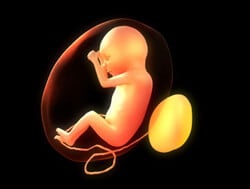
Few things are more tragic than the unexpected, accidental death of a child. The United States Department of Health and Human Services reports that accidental injuries, including injuries from motor vehicle accidents, are the leading cause of death for American children. According to the National Highway Traffic Safety Administration, approximately four children under the age of 14 die in a motor vehicle accident each day. Children are particularly susceptible to injury in car accidents because of their smaller size and because they are not always properly restrained.
Often, these accidents are preventable and are caused by someone else's negligence. When someone else causes the preventable death of a child, they can be held liable in court for wrongful death. Depending on the circumstances, parents can potentially bring a wrongful death suit against a wide variety of people. Although one can bring a wrongful death case for the death of a child, the question that arises is what happens if the child has not yet been born?
Death of an Unborn Child
When an unborn child is killed in a preventable accident, the legal issues become more complicated, and parents cannot always recover in a wrongful death lawsuit. Many states have determined that a wrongful death claim can be pursued in cases where an unborn child is killed as a result of negligence, malpractice, the production or distribution of an unsafe product, or a third party’s criminal action
The issue of bringing a wrongful death claim for an unborn child typically arises in one of two situations:
(a) An unborn child dies because the mother is killed; or
(b) The mother survives, but the unborn child dies either in utero or at the time of delivery.
Earlier this year, 29 year-old Erin Shook was driving in Indiana when she was involved in a serious motor vehicle accident. Shook was 35 weeks pregnant, and doctors were unable to save either her or her unborn child. Similarly, a 39 year-old pregnant woman was involved in a collision in New Jersey and lost her unborn child. In both circumstances, the loss of an unborn child occurred. However, options for wrongful death suits on behalf of the unborn children are very different because the women lived in different states.
The right to bring such a lawsuit on behalf of an unborn child depends on the laws of each particular state. As of 2013, 40 states recognize a claim for wrongful death of an unborn child. Of those States that recognize the claim for wrongful death, 27 states and the District of Columbia allow a wrongful death suit only if the child was viable at the time of his or her death. 13 states allow suits even for a child that was not viable at the time of death.
10 states do not include a fetus of any viability stage in the definition of a “person” in their wrongful death statutes. These states require a child to be born alive first, and then die thereafter in order to be the subject of a wrongful death claim.
Based upon the different statutory definitions of wrongful death, the outcome of the two recent tragic incidents are not the same. Indiana is one of the 27 States that allow for a wrongful death claim if the child was at a viable age at the time of death. Because 35 weeks is considered an age in which a fetus would be able to live outside of the womb, the Indiana family would be able to bring a claim for wrongful death for both the mother and her unborn child. Conversely, because the unborn child of the 39 year-old New Jersey woman was not actually born alive prior to dying; she cannot bring an action for the death of her child against the responsible driver.
What should you do if you lose a child in an accident?
Navigating the wrongful death laws of your particular state can be complicated and confusing. Firstly, not all states allow a cause of action for an unborn child. Moreover, even among the states that do permit a cause of action – some allow for an action to be brought for a pre-viable fetus and the majority only allow a claim if the child reached an age of viability. To complicate matters further, there are different definitions of a pre-viable fetus. For example, two of the 13 states that allow for a cause of action for a pre-viable fetus require the fetus to have reached the age of “quickening.” Similarly, for those states that allow a cause of action only if the child reached an age of viability, the age of viability could be defined differently depending on the state.
For this reason, it is highly important that you contact an experienced wrongful death attorney to discuss your potential case. A wrongful death attorney can assist you in every stage of your lawsuit, and can help you recover for the devastating loss of a child.



